THE DEFINITIVE GUIDE FOR THE TREATMENT OF TONSILLITIS
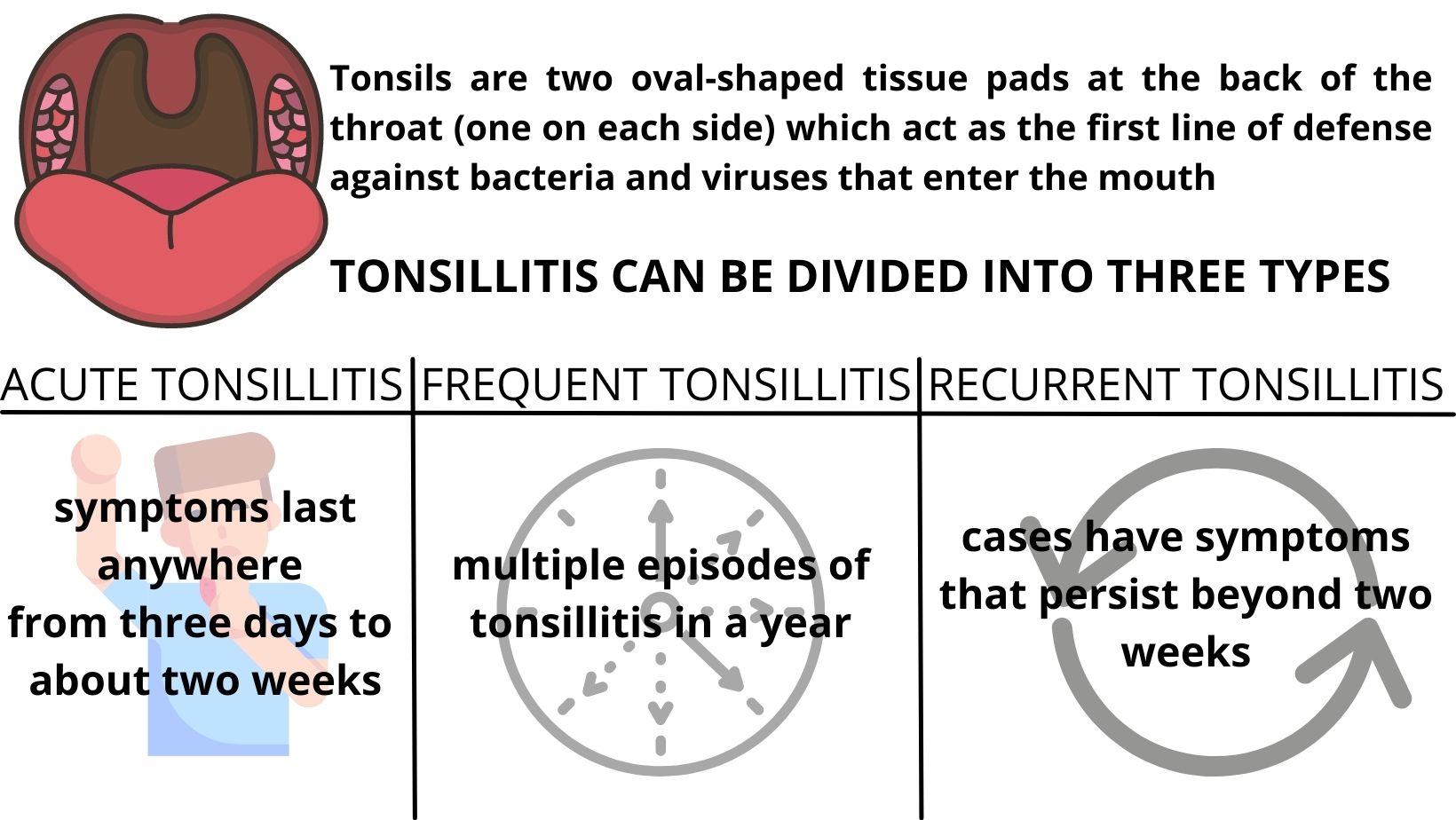 WHAT IS TONSILLITIS?
WHAT IS TONSILLITIS?
Tonsils are two oval-shaped tissue pads at the back of the throat (one on each side) which act as the first line of defense against bacteria and viruses that enter the mouth and thus make tonsils vulnerable to catch infection and get inflamed which decreases as the child grows up thus the chances of infection also decrease with age.
Thus tonsils are tissue on both sides of the back of the throat that help the body fight infection. They trap bacteria and viruses entering through the throat and produce antibodies to fight infection.
Tonsillitis means inflammation of tonsils when tonsils are infected. Tonsils become infected by bacteria or viruses, which causes them to swell.
Tonsillitis can be caused by infections such as viruses (ie. cytomegalovirus, herpes simplex, Epstein-Barr) or bacteria such as streptococcus. Tonsillitis occurs more commonly in children than in adults but does not typically affect children under the age of 2.
Tonsillitis is divided into three types, which is dependent upon the frequency of times tonsillitis occurs and how long it lasts:
- Acute tonsillitis includes cases where symptoms last anywhere from three days to about two weeks.
- Recurrent tonsillitis occurs when a person suffers from multiple episodes of tonsillitis in a year.
- Chronic tonsillitis cases have symptoms that persist beyond two weeks.
Frequent or recurrent tonsillitis is generally defined as:
- More than 7 episodes in 1 year
- More than 5 episodes a year during a 2-year period
- More than 3 episodes a year during a 3-year period
Tonsillitis most commonly affects children between preschool ages to mid-teenage years. Recurrent tonsillitis has become one of the major causes for the absence of children from school nowadays. Parents visit the pediatrician frequently due to their child falling sick every fortnight.
Tonsillitis may or may not be contagious, depending on the cause. If the cause is viral or bacterial, it is usually contagious.
If the tonsillitis is caused by a chronic condition, such as sinusitis or allergies, it is likely not contagious.
WHAT ARE THE RISK FACTORS OF TONSILLITIS?
Risk factors include young age (5-15 years) and during school years as exposure to germs is maximum during school age due to close contact to other children.
WHAT ARE THE SYMPTOMS OF TONSILLITIS?
• Sore throat
• Difficulty or painful swallowing
• Fever
• Bad breath
• Hoarseness of voice
• On examination tonsils are red, swollen, and white or yellow coating or patches may be seen on the tonsils along with enlarged lymph nodes in the neck region.
The child would refuse food on account of pain while swallowing.
WHAT ARE THE CAUSES OF TONSILLITIS?
- viral
- Bacterial (most common streptococcus pyrogens)
DIAGNOSIS OF TONSILLITIS
- Symptoms are enough to diagnose the test.
- Further throat swabs can be done to confirm the diagnosis and see the causative microorganism.
TREATMENT OF TONSILLITIS
Treatment usually includes antibiotics in allopathy and recurrent infections are seen.
MANAGEMENT OF TONSILLITIS
- Gargles with warm water.
- Ask the child to avoid cold water and drinks.
- Ask the child to drink normal or warm water.
- Give the child a healthy diet to boost immunity.
- Ask the child to be playful and active.
- Proper hygiene should be maintained.
- Homeopathic medicines.
HOMEOPATHIC MANAGEMENT OF TONSILLITIS
Homeopathy is a rapid, gentle way to health and is very effective in treating diseases of children. There are many homeopathic medicines that not only help the child get relieved from the current infection but also would boost his immunity and prevent recurrent infection. Thus the child is able to live a healthy life, is able to grow and develop well.
Homeopathic medicines which are very effective in the treatment of recurrent tonsillitis include- baryta carb, merc sol, silicea, sulphur, graphites, agraphis, hear sulph, psorinum, calcarea carb, tuberculinum etc.
Medicines often help the child to lead a near-normal life and medicines are chosen depending on the presenting case.
DO’S AND DON’TS
DO’S
- Children should stay active.
- Children should take a healthy diet to have good immunity.
- Hygiene should be maintained.
DON’TS
- Avoid too many candies.
- Avoid chilled water.
- Avoid very sour food items.
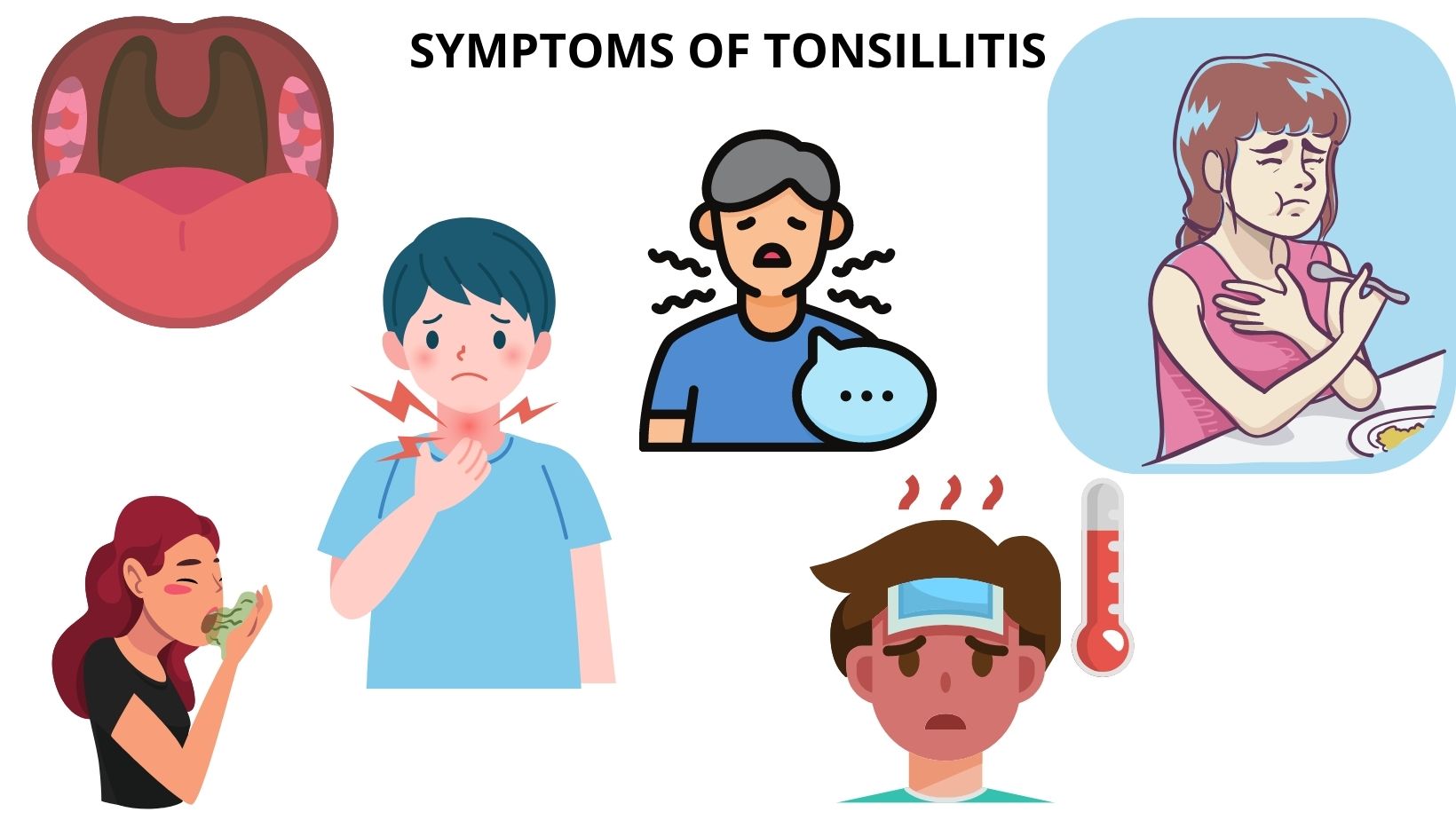
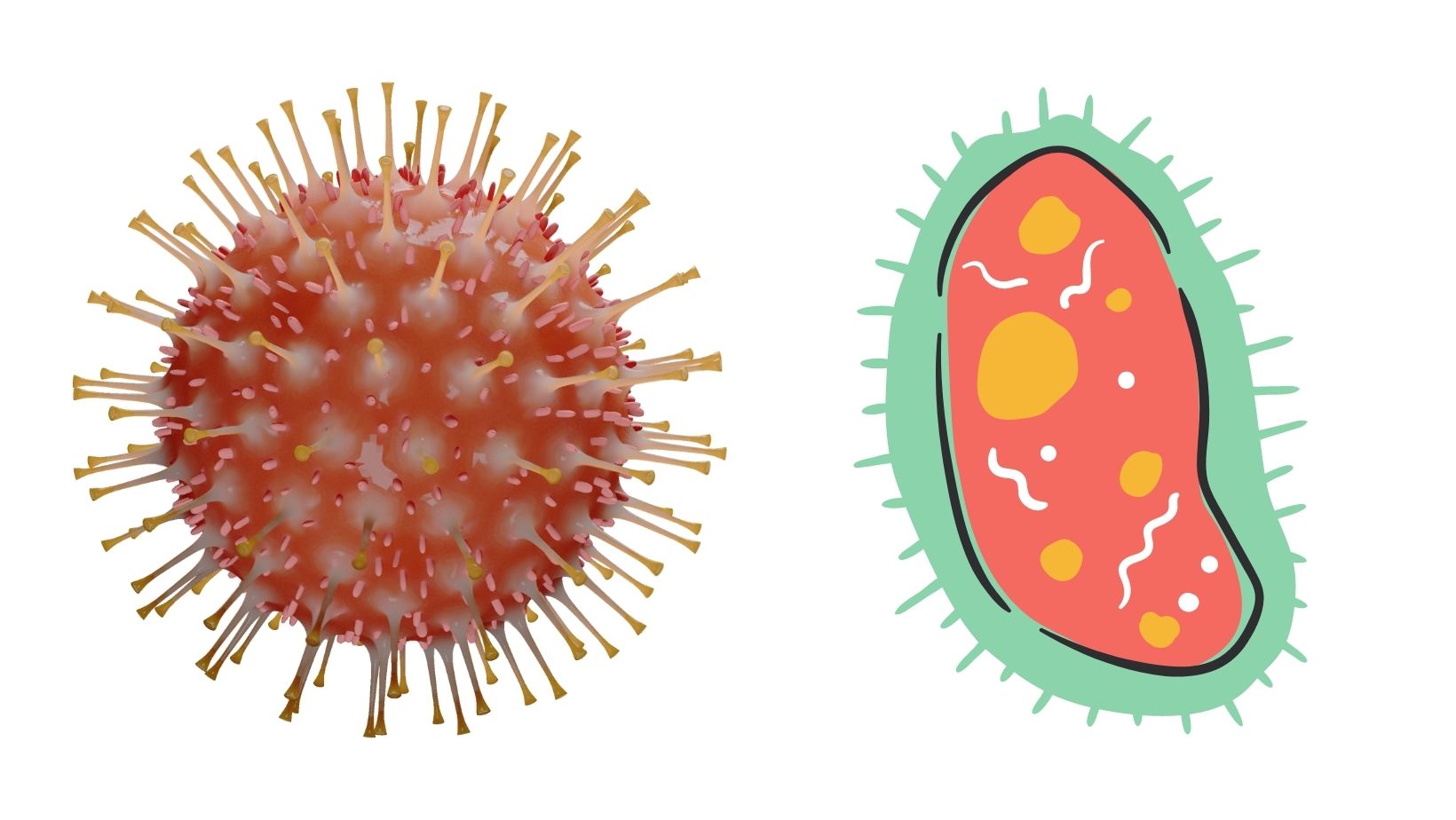
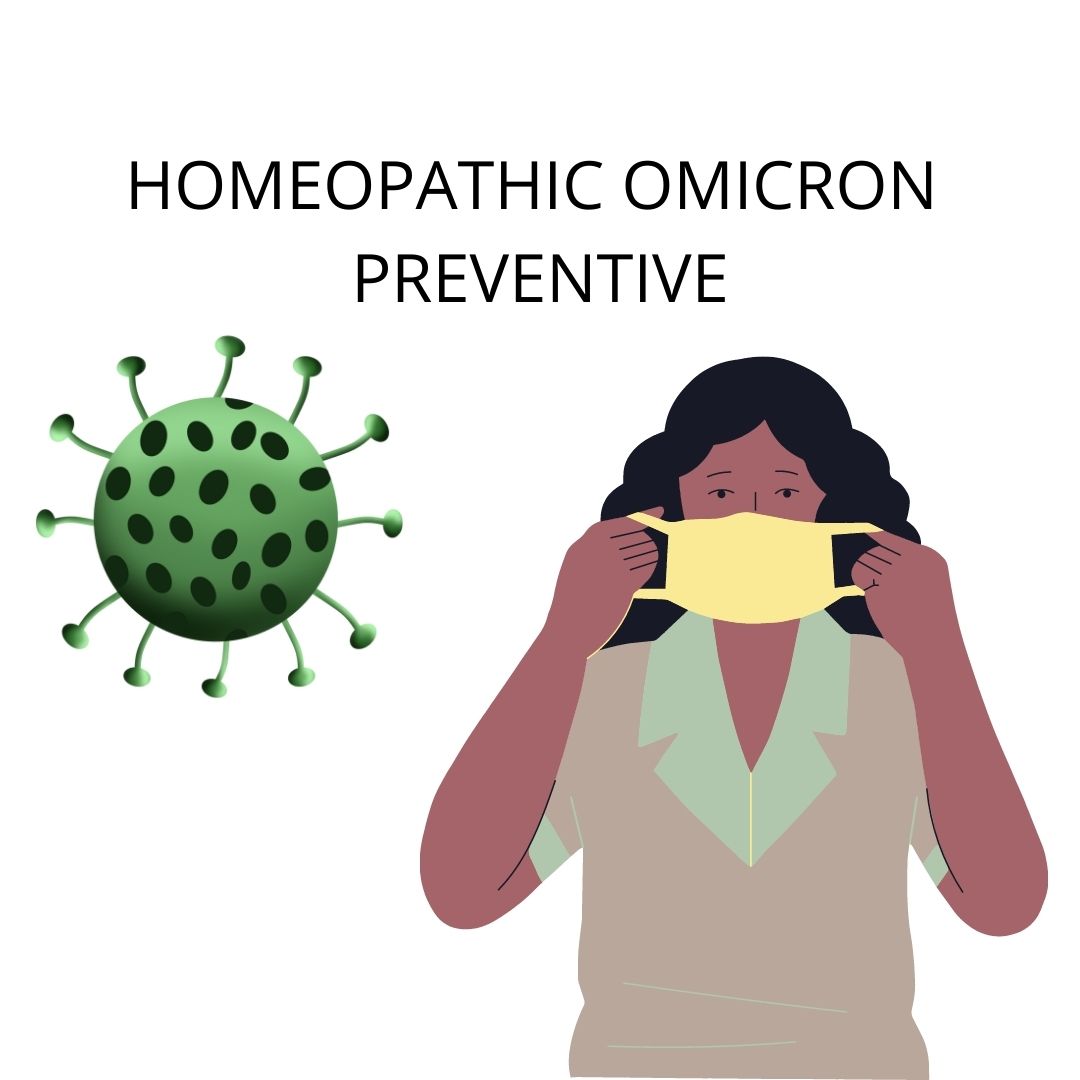
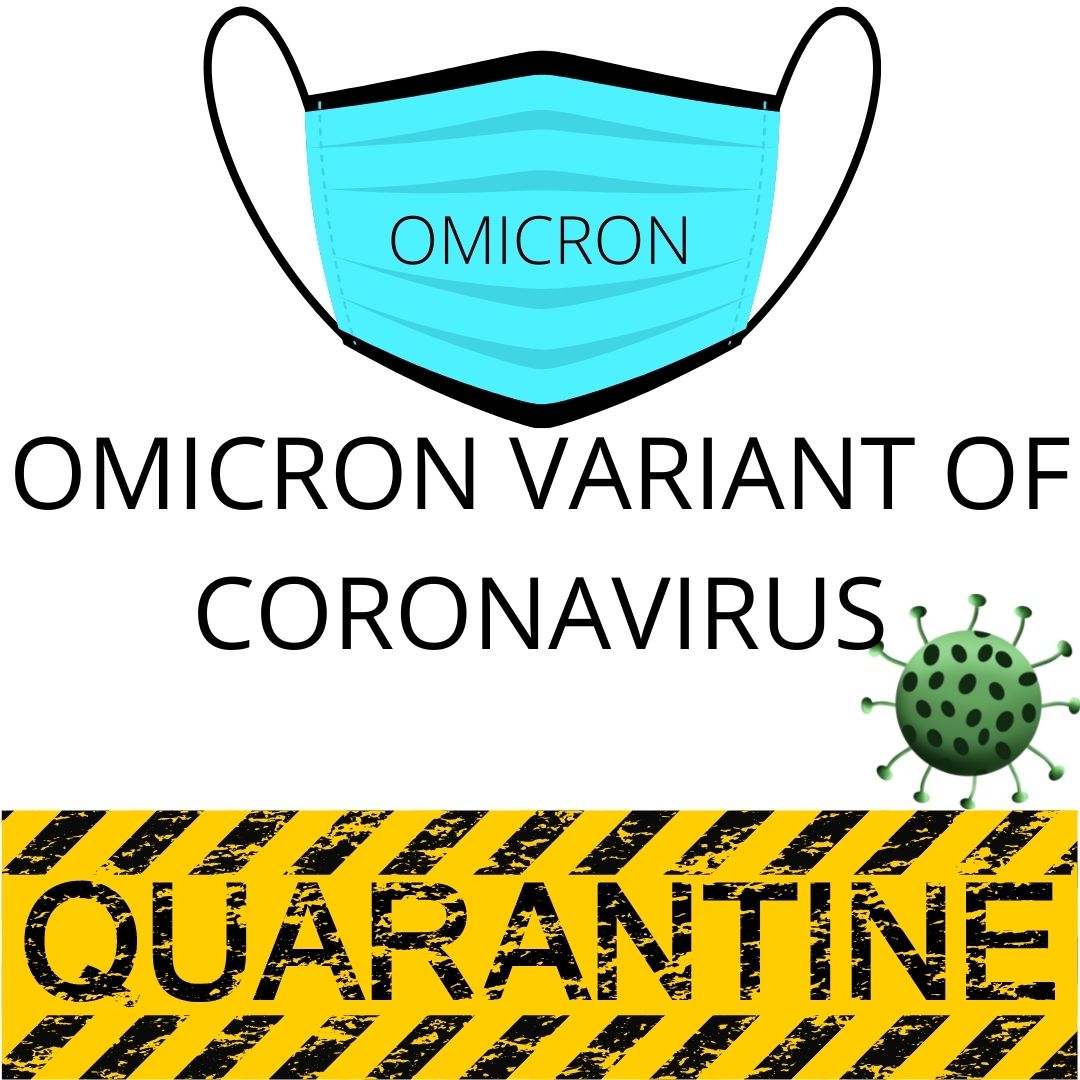
Comments
We have received your comment , Thank You !